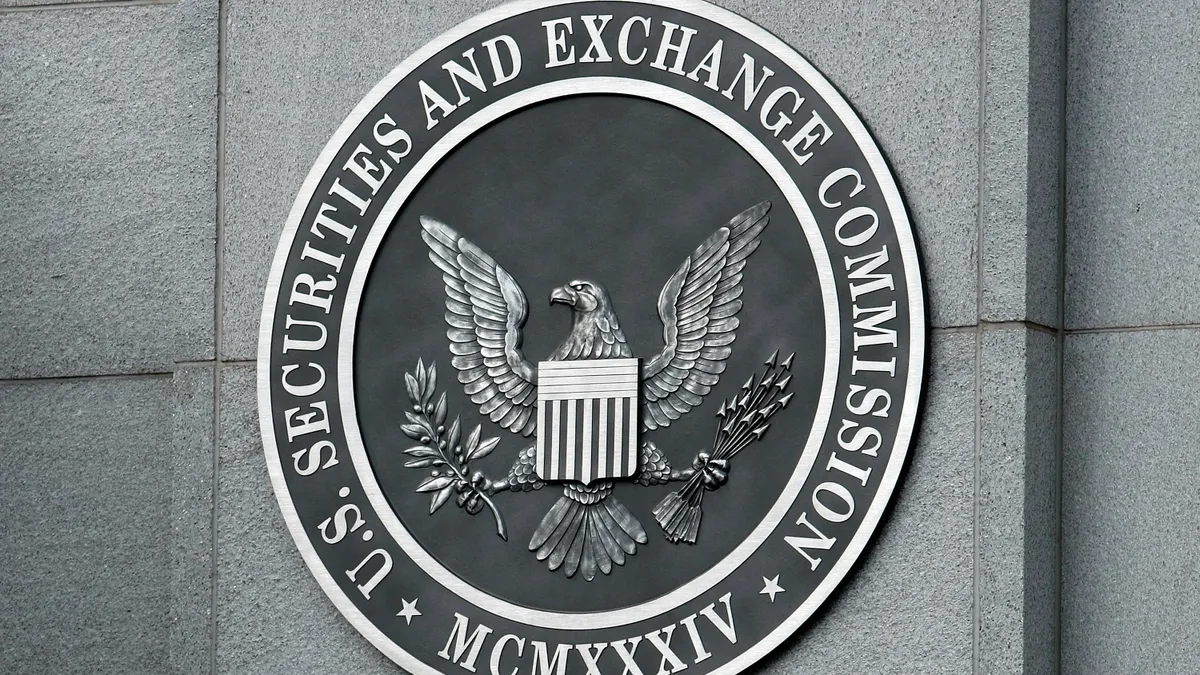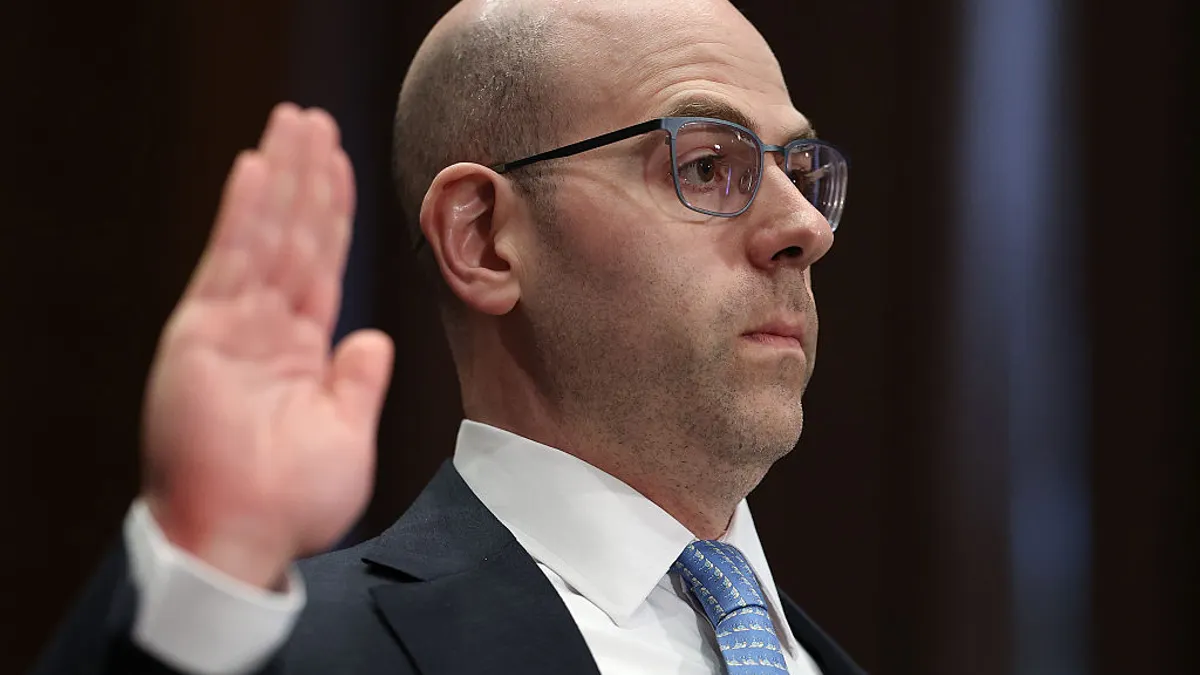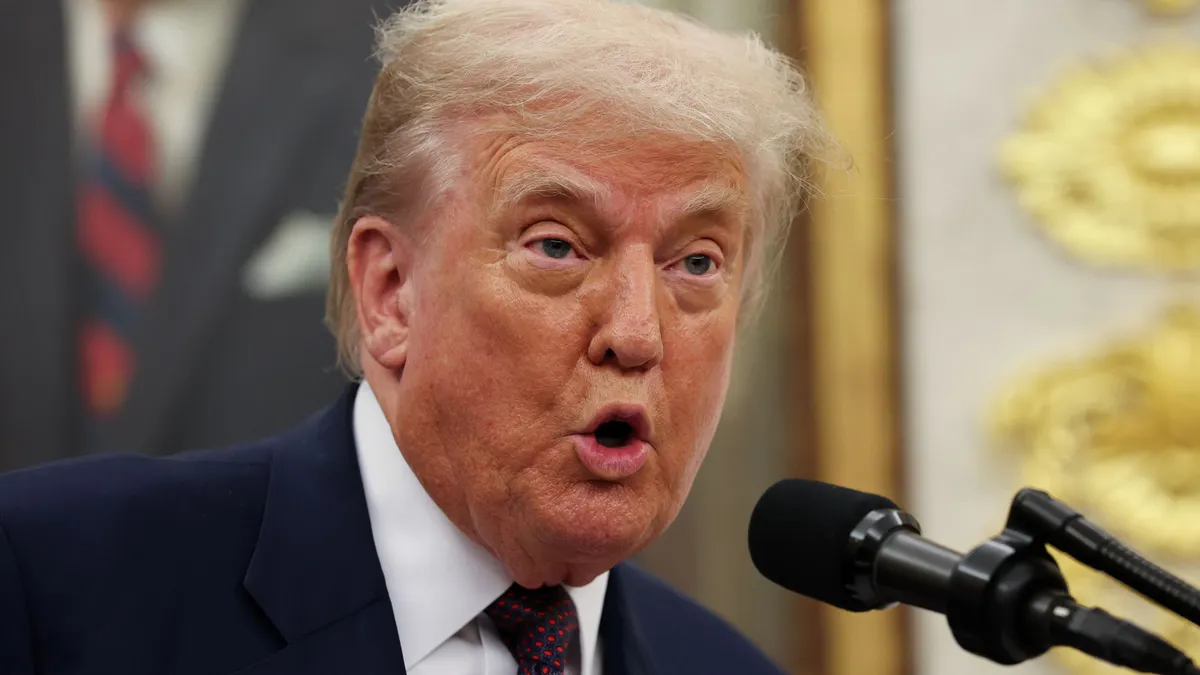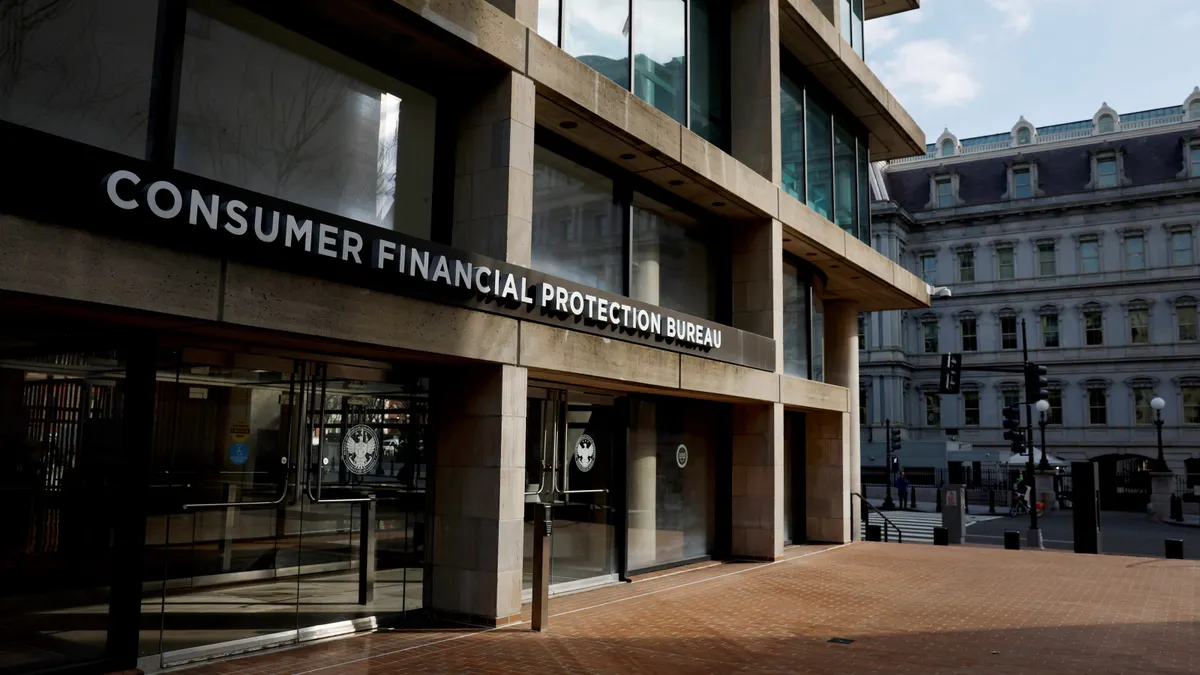The Securities and Exchange Commission is “chip[ping] away” at decades of its own work and “playing a game of regulatory Jenga” by slashing headcount and dismantling prior rules, Commissioner Caroline Crenshaw said Monday.
At an SEC-hosted event Monday, Crenshaw called out the commission’s regulatory about-face since January and drew a comparison to deregulation that preceded the 2007-08 financial crisis.
“Our proverbial Jenga tower is made up of a set of discrete but interrelated rules and laws, deeply and carefully developed over the years, and implemented by a strong agency of experts, skilled in overseeing and regulating our increasingly complex markets,” Crenshaw said.
“Of course, in Jenga, the tower remains standing when you pull out a block or two here and there. But, how many blocks can you pull before the tower gives way? When it comes to the stability of our markets, how far are we willing to take our dangerous game? Who would ultimately be the loser when the foundation gives way?” she asked.
The ultimate loser, she suggested, could be “Main Street Americans.”
The Jenga pieces? Staff – of which 15% have left recently through voluntary retirement, resignation and “the specter of random firings” – is the first to have been pulled, she said.
Next out, the commission has “diluted or effectively rescinded the laws without due consideration of the costs, benefits, or public feedback” – largely on crypto-related issues for which it’s developed guidance, including on memecoins and crypto mining.
“I am concerned that staff guidance is not the correct vehicle for declarations of this magnitude, and we need to carefully analyze suggestions that we ought to create some alternative, presumably lesser, regime to accommodate industry and promised innovation,” Crenshaw said.
The SEC has also, of late, “declined to defend” recently adopted rules, and engaged in a pattern of undoing the adopted work of prior commissions, she said.
“The result is that every ‘final’ rule feels like it isn’t final at all. This is problematic for our reputation and credibility as a regulatory body and may undermine the presumption of regularity of government affairs,” Crenshaw said. “[T]o reverse course on rules before they have even gone into full effect suggests that a prior Commission vote is meaningless against the slightest change in the political breeze.”
Three of the SEC’s four current commissioners, including Crenshaw, Hester Peirce, Mark Uyeda, served on the commission during the approval and implementation of several rules the agency is now amending. This includes climate disclosure rules and certain reporting rules, adopted in 2024.
Crenshaw is the commission’s only remaining Democrat. When the prior rules were approved, she served alongside then-Chair Gary Gensler and then-Commissioner Jaime Lizárraga. The commission today is down those two Democrats and up one Republican, Chair Paul Atkins.
The SEC’s about-face also “corrodes our reputation in front of courts, it undermines the credibility of the Commission and staff when we pursue enforcement cases involving all types of misconduct (not just crypto-related conduct), and it casts doubt on the state of longstanding and fundamental case law,” Crenshaw warned.
Those comments align with a dissent Crenshaw wrote this month in relation to a settlement the SEC and Ripple proposed, wherein the crypto firm would get back $75 million of the $125 million penalty to which it consented last August. Ripple and the SEC have been locked in a court battle since 2020 over whether the crypto firm’s token constitutes an unregistered security.
The Trump-era SEC’s walk-back of a penalty it won by following a stricter Biden-era stance “does a tremendous disservice to the investing public and undermines the court’s role in interpreting our securities laws,” Crenshaw wrote in her dissent.
“There will be no enforcement of the law. The hundreds of hours spent by the court in this matter will be rendered meaningless. And the court’s decision will be effectively vacated,” she added.
The SEC, in recent months, has abandoned cases against Robinhood, Coinbase, Kraken, Consensys and Ripple.
The final Jenga piece the SEC pulled of late, Crenshaw said, is that it has ignored significant risks, related and unrelated to crypto.
The risk of a large-scale crypto crash like the November 2022 failure of FTX hasn’t gone away, she said, but “calls for serious regulatory scrutiny are a lot quieter these days.”
As crypto becomes more intertwined with traditional finance through exchange-traded funds, “failing to appreciate and address these risks and complexities destines us to repeat hard lessons with high stakes,” she said.
Deregulation, and regulators’ failure to manage risks and heed signs of instability, has gone poorly before, Crenshaw noted. The 2007-08 financial crisis, she said, was “avoidable and the result of ‘human action and inaction,’” citing a bipartisan Financial Crisis Inquiry Commission report in the years that followed.
“I don’t want us to suffer the same fate,” she said.




















